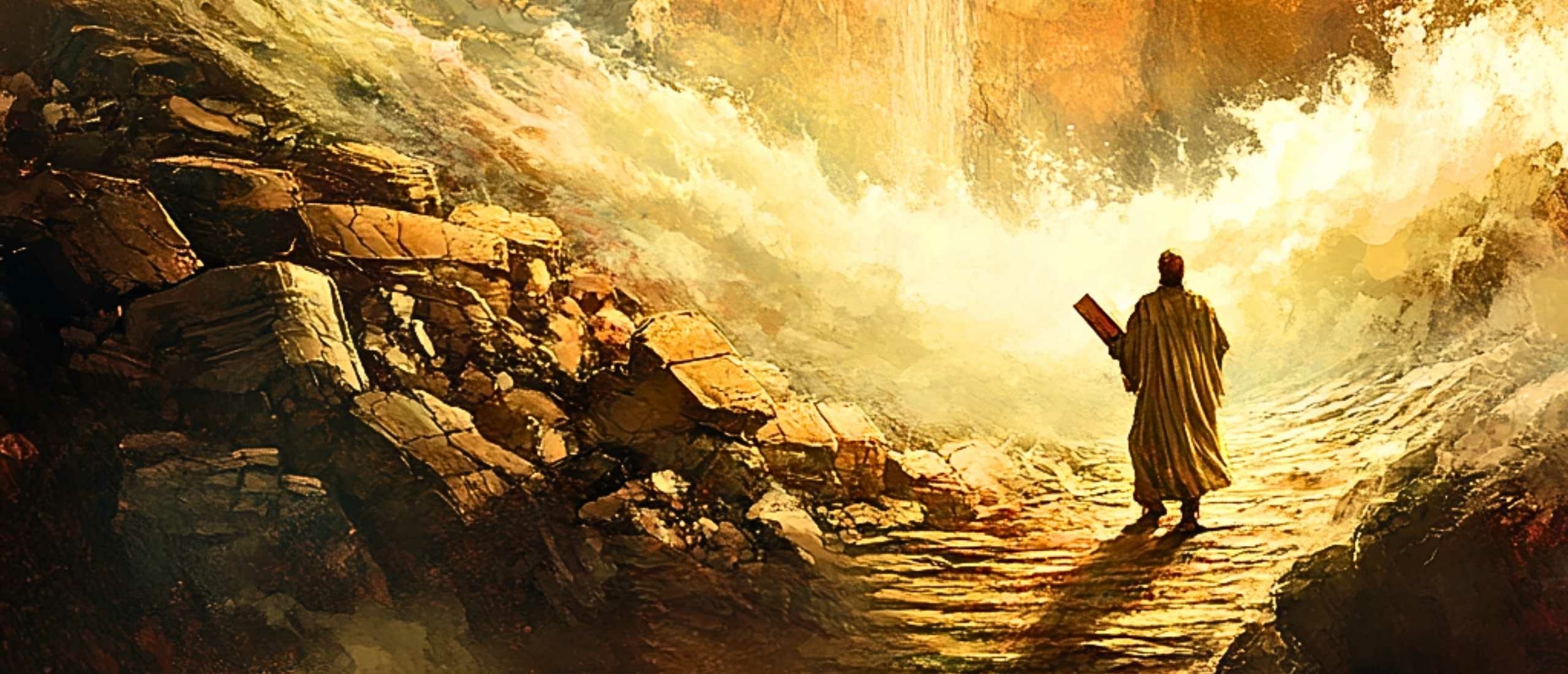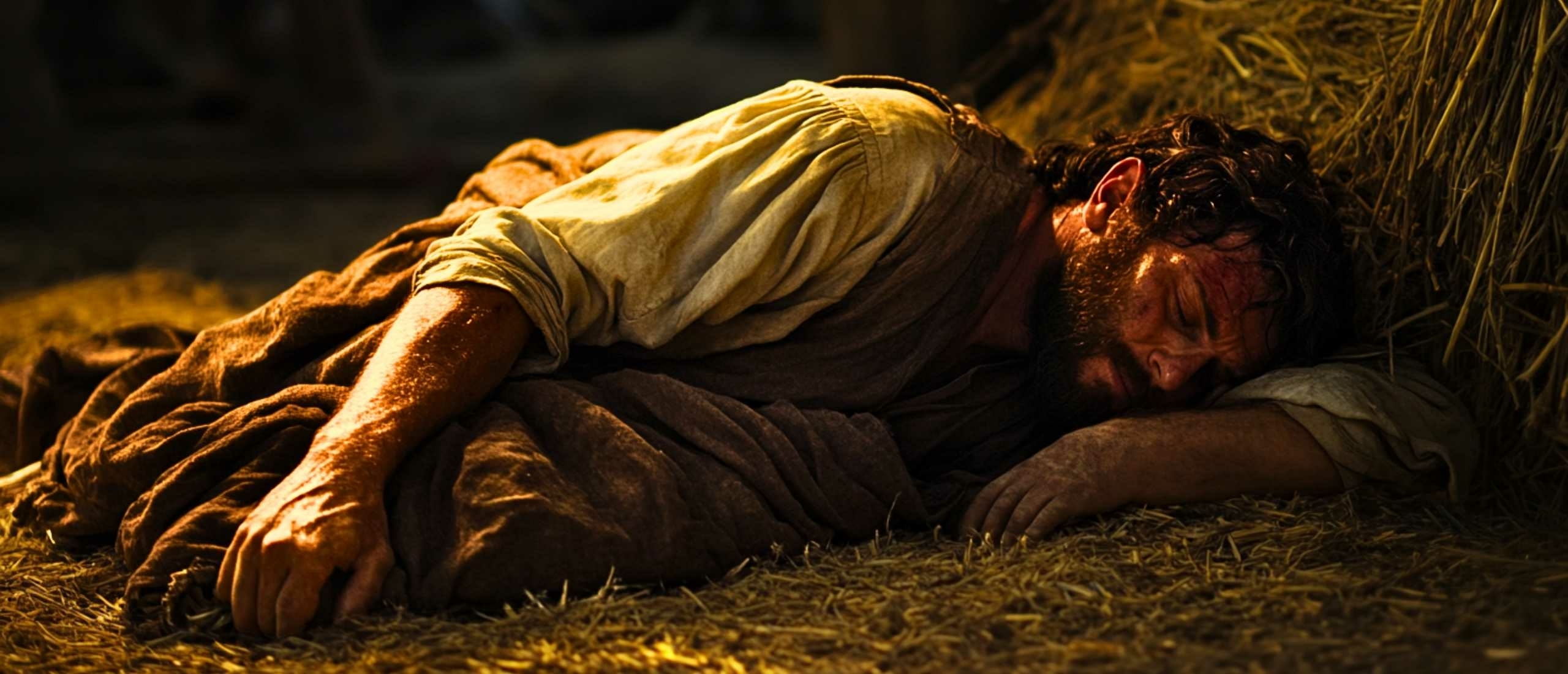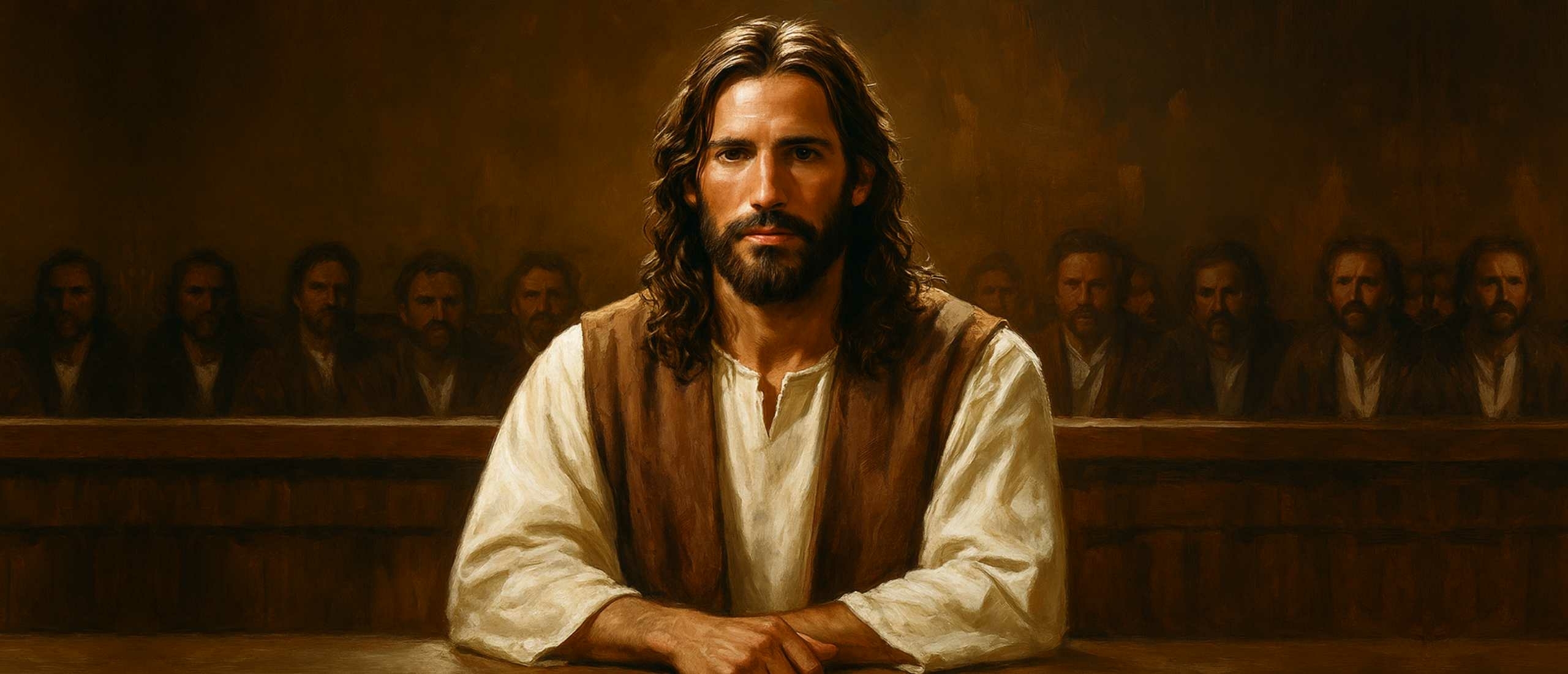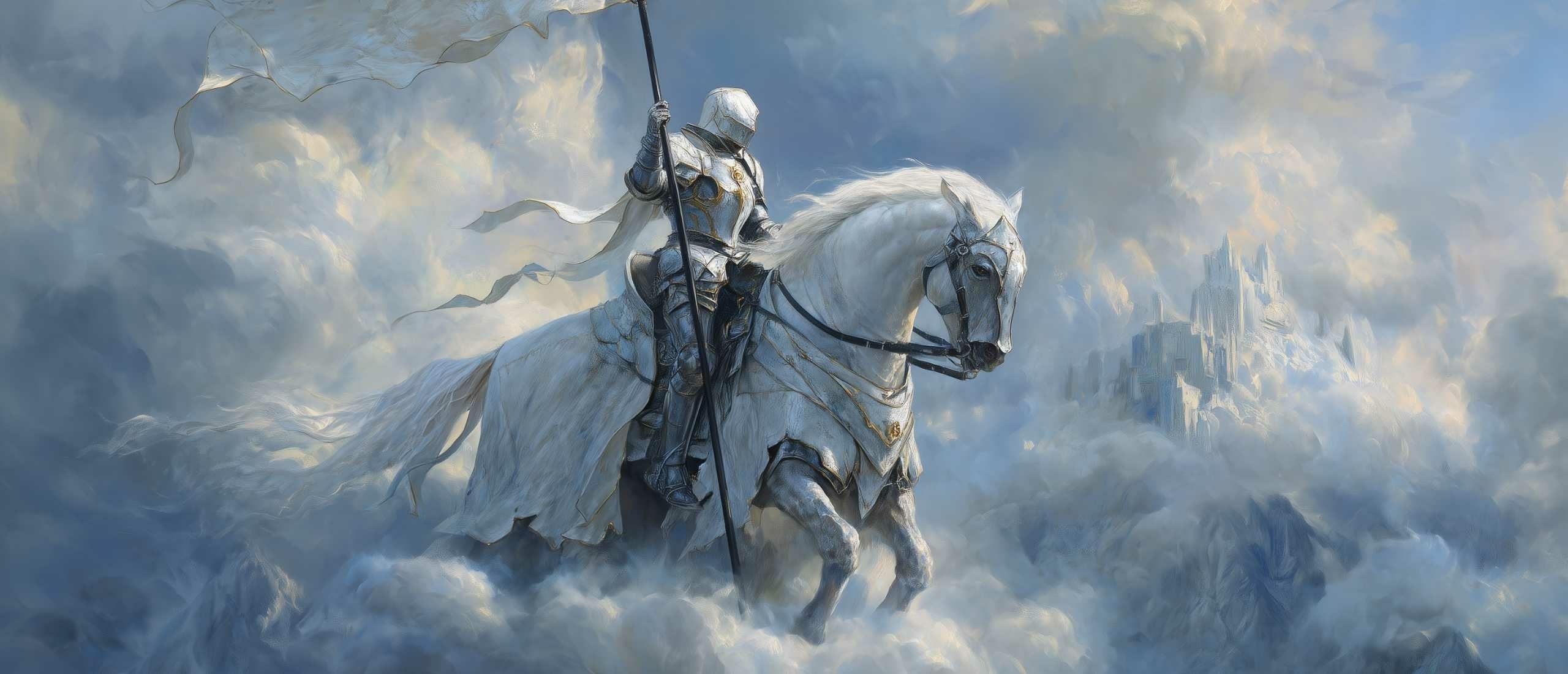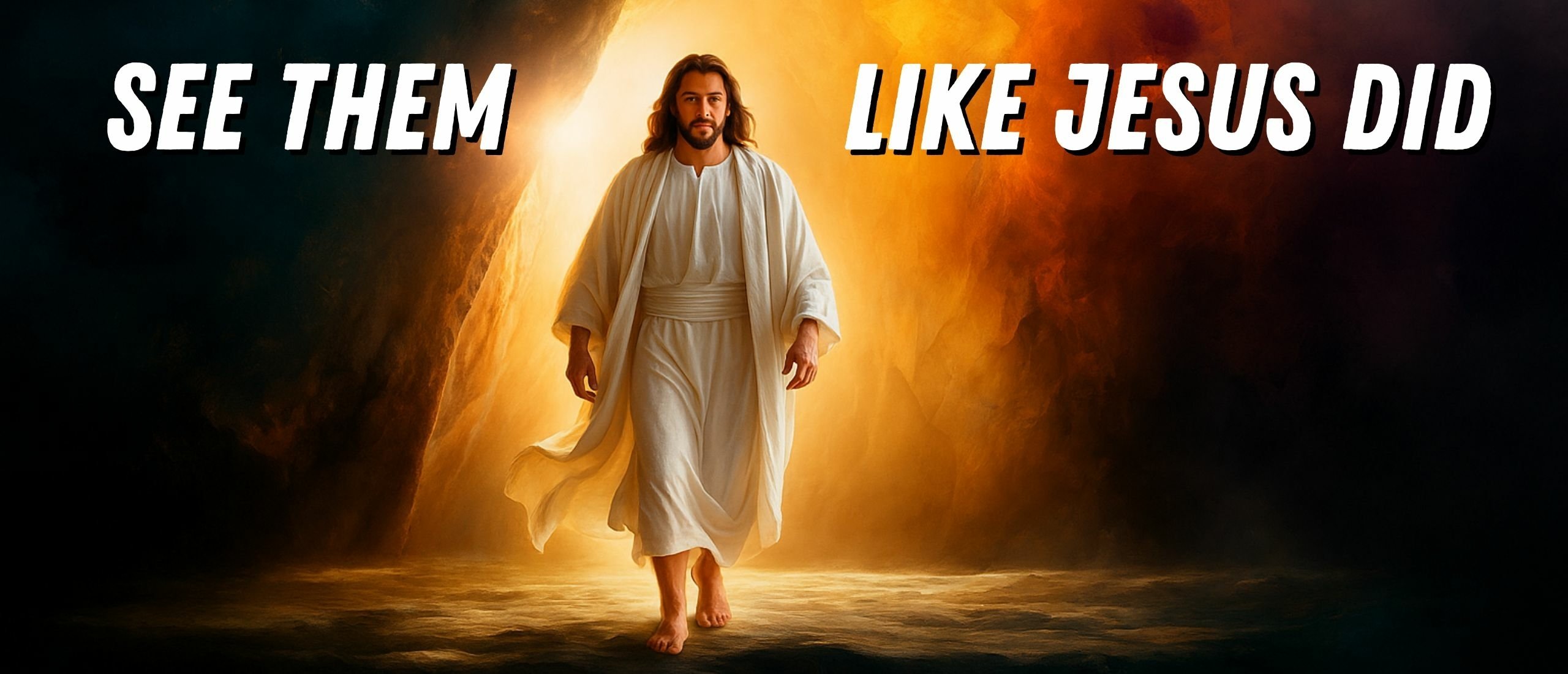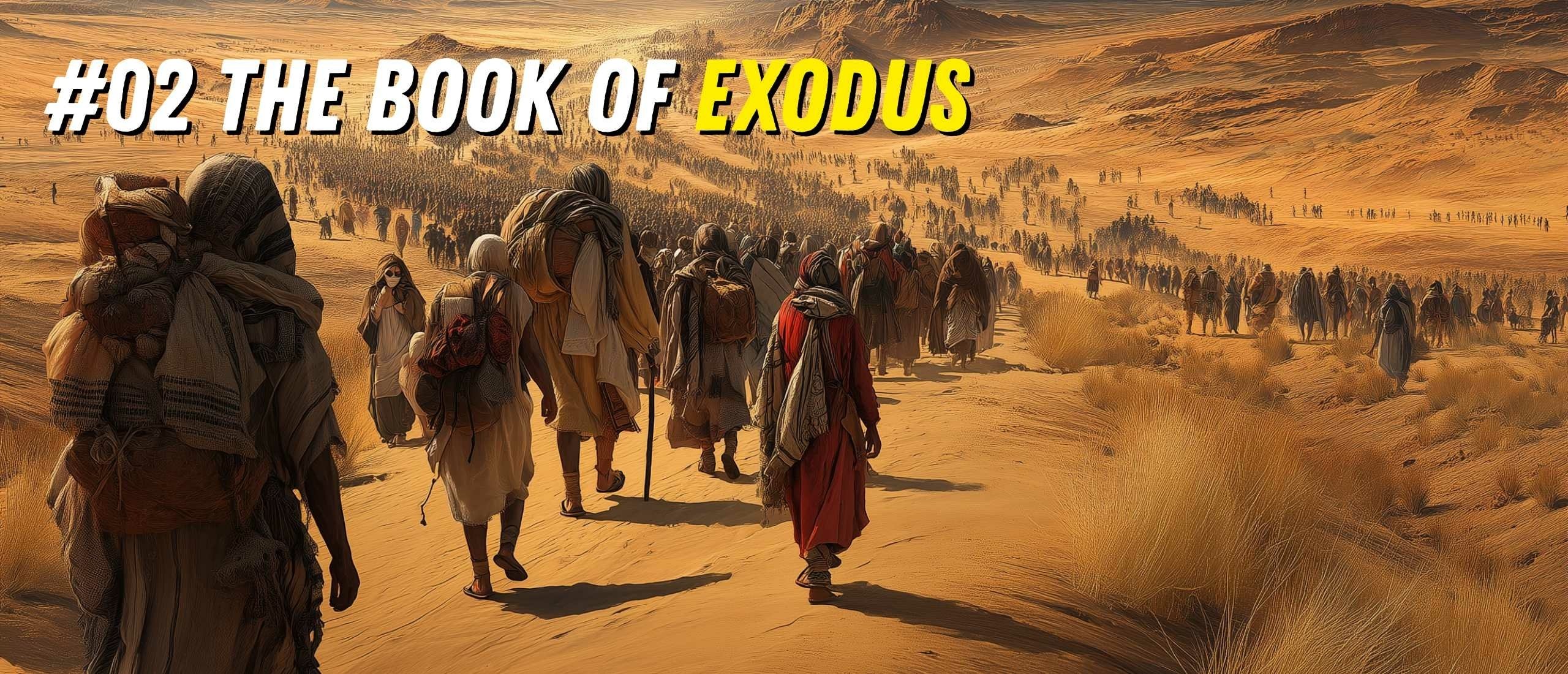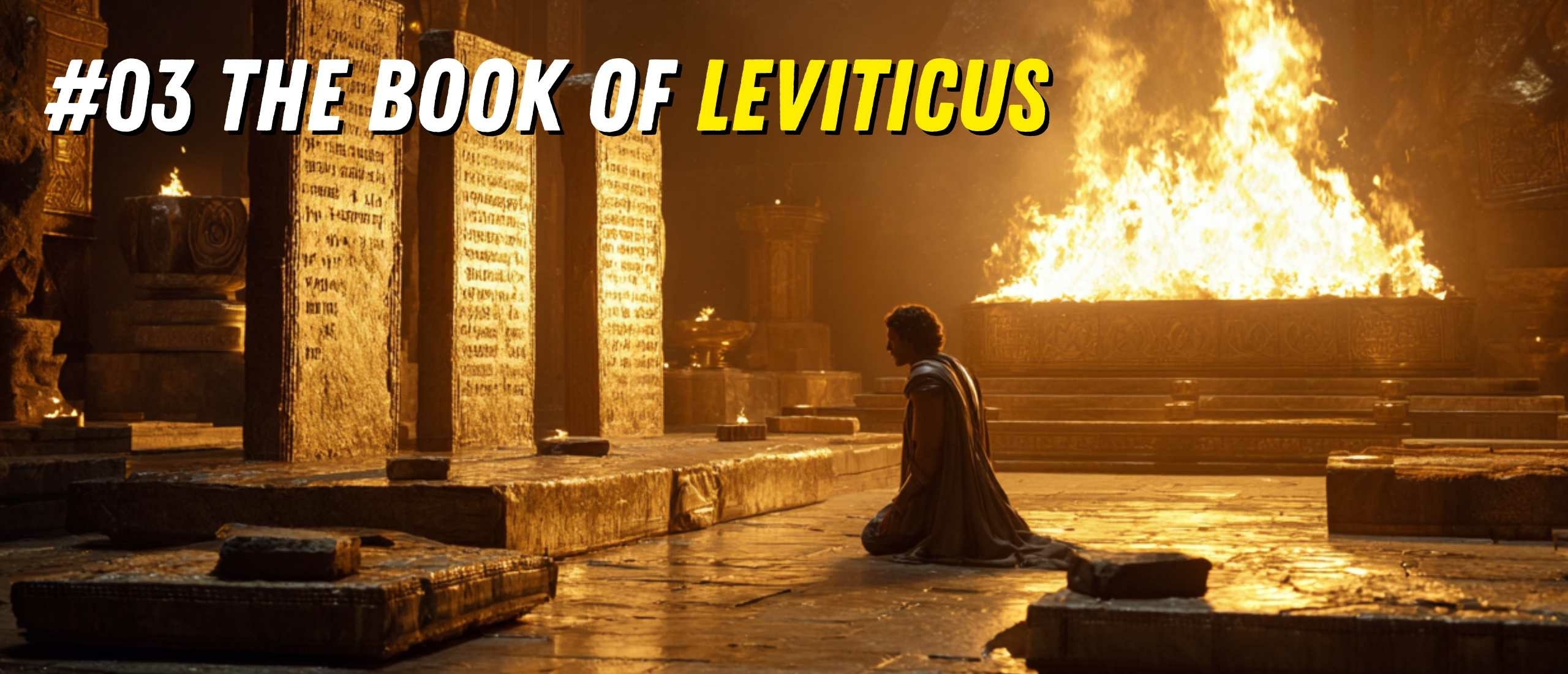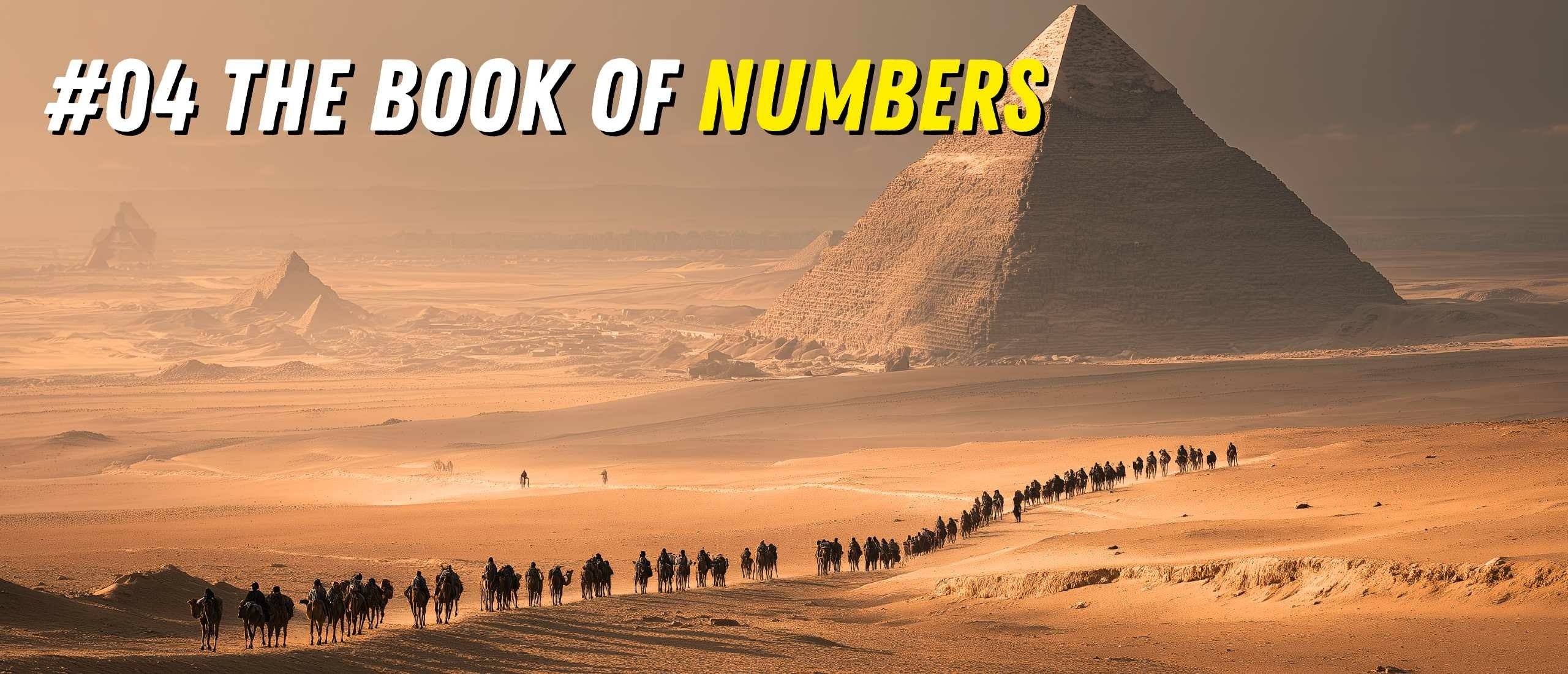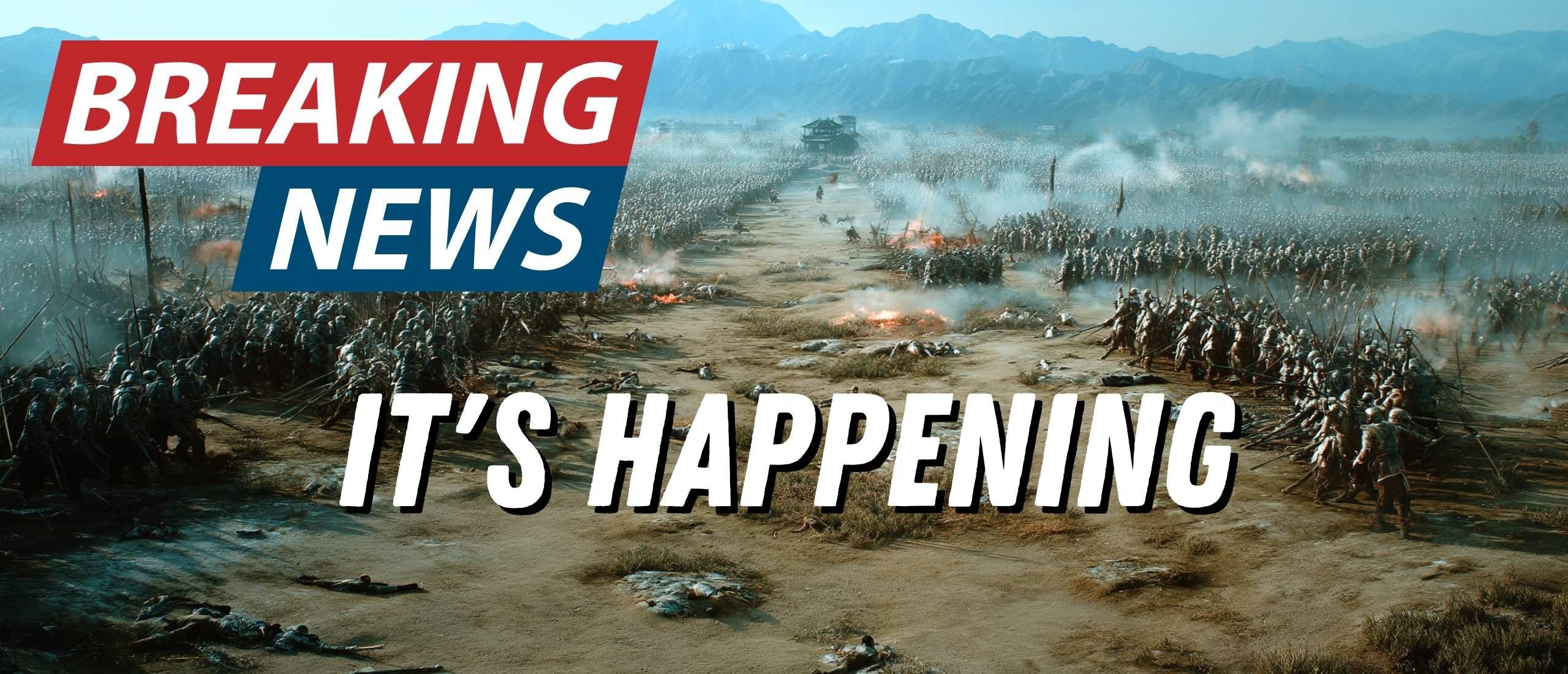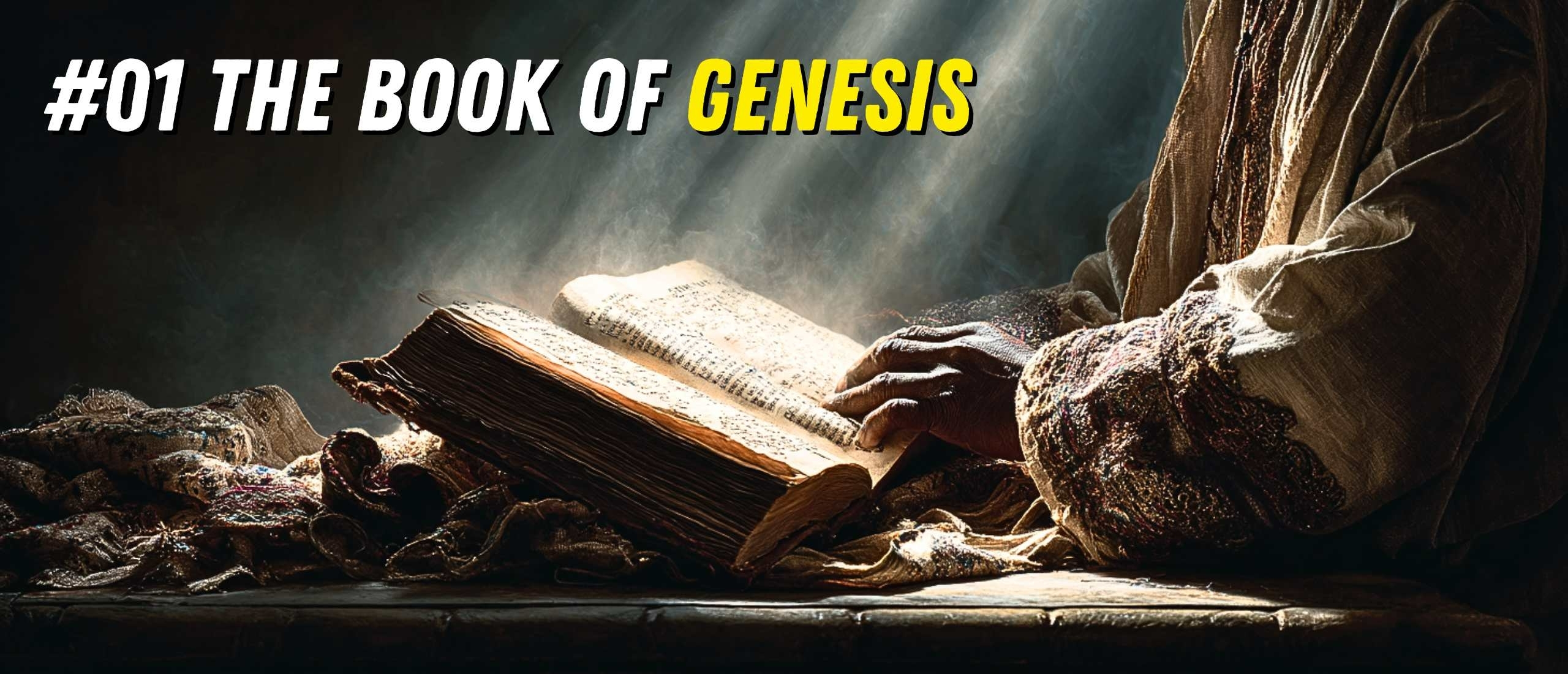
What if I told you there exists a book that answers the most fundamental questions of human existence? Questions like: Where do we come from? Why is there something rather than nothing? What is the meaning of good and evil? Why do we suffer? And where are we going? This book isn't on this week's bestseller list, but it has influenced the world more than any other book. It is Genesis, literally meaning "origin" or "beginning," and today we're going on a journey together through the stories that laid the foundations for everything we believe about God, humanity, and our place in the universe.
The Beginning of All Things
Genesis doesn't open with a philosophical treatise or a scientific formula, but with the most powerful words ever written: "In the beginning God created the heavens and the earth." This opening sentence is revolutionary in its simplicity and depth. In a world where ancient cultures believed in chaos, conflicts between gods, and chance as the origin of everything, Genesis declares that there is one God who consciously, purposefully, and lovingly created the universe.
The Hebrew word for "create," "bara," is used in the Old Testament exclusively for God's creative activity. It suggests creating something completely new out of nothing, something only God can do. This is not chance or an evolutionary process, but the conscious act of an almighty, intelligent Creator who brings order to chaos and gives meaning to existence.
The earth was formless and empty, and darkness was over the surface of the deep. But the Spirit of God was hovering over the waters, ready to bring life and light where there had been only void and darkness. This image of the Spirit hovering uses the same Hebrew word used to describe a mother bird brooding over her nest, suggesting care, protection, and the imminent birth of something precious.
Then God spoke. "Let there be light," and there was light. These simple words contain profound theological truth. God creates through His word, demonstrating that He is not part of creation but transcends it. His word has the power to bring reality into existence. When God speaks, things happen. This principle would echo throughout Scripture, culminating in John's declaration that "the Word became flesh" in Jesus Christ.
The Six Days of Creation
God saw that the light was good, and He separated the light from the darkness. This is the first time we encounter God's evaluation of His creation as "good." The Hebrew word "tov" means not just functionally good, but beautiful, pleasing, and morally excellent. God doesn't create accidentally or reluctantly; He creates with pleasure and satisfaction in His work.
The creation account unfolds in six days, each building upon the previous. On day two, God separated the waters above from the waters below, creating the expanse of sky. On day three, He gathered the waters into seas and caused dry land to appear, then commanded the earth to produce vegetation. Each plant and tree was created to reproduce "according to its kind," establishing the principle of order and design in nature.
Day four brought the creation of the sun, moon, and stars to serve as lights in the heavens and to mark seasons, days, and years. This was particularly significant in the ancient world, where celestial bodies were often worshiped as deities. Genesis makes clear that these are not gods but created objects serving God's purposes. The sun and moon are not even named in the Hebrew text, but are simply called "the greater light" and "the lesser light," emphasizing their servant role rather than divine status.
Day five saw the creation of sea creatures and birds. For the first time, we read that God blessed His creatures, saying, "Be fruitful and increase in number and fill the water in the seas, and let the birds increase on the earth." This blessing reveals God's desire for abundance and flourishing in His creation. Life is not merely to exist but to thrive and multiply.
The Crown of Creation
But day six would bring the crown of creation. After creating land animals, each according to their kind, God paused for what appears to be divine consultation: "Let us make mankind in our image, in our likeness, so that they may rule over the fish in the sea and the birds in the sky, over the livestock and all the wild animals, and over all the creatures that move along the ground."
This verse contains one of the most significant theological concepts in all of Scripture: the image of God. Unlike anything else in creation, humans are made in God's image and likeness. The Hebrew words "tselem" and "dmuwth" suggest both representation and resemblance. Humans are God's representatives on earth, endowed with qualities that reflect His nature: creativity, morality, relationality, rationality, and the capacity for spiritual connection with their Creator.
The dual nature of this creation is remarkable: "So God created mankind in his image, in the image of God he created them; male and female he created them." Both man and woman equally bear God's image. Gender is not incidental but integral to the full expression of God's image in humanity. The complementarity of male and female reflects something profound about God's nature and His design for human relationships.
God blessed them and commanded them to "be fruitful and increase in number; fill the earth and subdue it. Rule over the fish in the sea and the birds in the sky and over every living creature that moves on the ground." This cultural mandate establishes humanity's role as stewards of creation. The word "subdue" doesn't suggest exploitation but responsible management. Humans are to care for creation as God's representatives, reflecting His character in how they treat the earth and its creatures.
The Garden of Eden
But Genesis 2 gives us an even more intimate look at human creation. "Then the Lord God formed a man from the dust of the ground and breathed into his nostrils the breath of life, and the man became a living soul." The Hebrew word "yatzar" means to shape or mold, like a potter working with clay. This suggests careful, personal attention in human creation. But what makes humans unique is that God breathed into them the breath of life. This divine breath is what makes humans living souls, capable of a relationship with their Creator.
God planted a garden in Eden, in the east, and placed the man there. Eden means "delight" or "pleasure," indicating that God created a place of perfect beauty and satisfaction for human habitation. In this garden grew every tree that was pleasant to the sight and good for food, including two significant trees: the tree of life and the tree of the knowledge of good and evil.
The Lord God took the man and put him in the Garden of Eden to work it and take care of it. Even in paradise, humans had meaningful work. This wasn't toil or frustration, but a creative, fulfilling activity that reflected God's creative nature. Work is not a curse but a blessing, a way humans participate in God's ongoing care for creation.
But then came the first prohibition: "And the Lord God commanded the man, 'You are free to eat from every tree in the garden; but you must not eat from the tree of the knowledge of good and evil, for when you eat from it you will certainly die.'" This command established moral responsibility. Humans were created with free will, the ability to choose obedience or disobedience. The tree represented the boundary between creature and Creator, a test of trust and submission to God's authority.
The Creation of Woman
Then the Lord God said, "It is not good for the man to be alone. I will make a helper suitable for him." This is the first time something is called "not good" in creation. Humans are created for relationships, first with God, but also with each other. The word "helper" doesn't suggest inferiority but partnership. The same Hebrew word is often used to describe God as our helper.
God brought all the animals to Adam to name them, demonstrating human authority over creation and intellectual capacity. But among all the creatures, no suitable companion was found for Adam. So God caused a deep sleep to fall on the man, and from his rib He made a woman and brought her to him.
Adam's response was one of joyful recognition: "This at last is bone of my bones and flesh of my flesh; she shall be called Woman, because she was taken out of Man." The Hebrew suggests excitement and completion. The word play between "ish" (man) and "ishshah" (woman) emphasizes their unity and complementarity.
"That is why a man leaves his father and mother and is united to his wife, and they become one flesh." This verse establishes the divine design for marriage as a lifelong, exclusive union between one man and one woman. The phrase "one flesh" speaks to physical, emotional, and spiritual unity that reflects the very nature of God.
The Fall of Humanity
"Adam and his wife were both naked, and they felt no shame." In their innocence, there was perfect transparency, trust, and intimacy between them. Shame is the result of sin, but in the garden, there was perfect love that cast out all fear and self-consciousness.
But this paradise was not to last. Genesis 3 introduces us to the reality of evil and the devastating consequences of human rebellion against God. The serpent, described as more cunning than any beast of the field, approached the woman with a question that would echo through history: "Has God indeed said, 'You shall not eat of every tree of the garden'?"
This question introduced doubt about God's word and character. The serpent's strategy was subtle: first questioning God's command, then contradicting it directly. "You will not surely die," the serpent declared. "For God knows that when you eat from it your eyes will be opened, and you will be like God, knowing good and evil."
Here was the temptation that has plagued humanity ever since: the desire to be like God, to determine for ourselves what is right and wrong, to be autonomous rather than dependent on our Creator. The woman saw that the fruit was good for food, pleasing to the eyes, and desirable to make one wise. She took and ate, and gave also to her husband who was with her, and he ate.
The consequences were immediate and devastating. Their eyes were opened, but not to the enlightenment they expected. Instead, they experienced shame, fear, and alienation. They made coverings for themselves and hid from the presence of God. Sin had entered the world, bringing with it death, suffering, and separation from their Creator.
God's Response to Sin
When God came walking in the garden in the cool of the day, calling "Where are you?" it wasn't because He didn't know their location. It was an invitation to confession and restoration. But instead of repentance, Adam blamed both God and his wife: "The woman you put here with me—she gave me some fruit from the tree, and I ate it." Eve blamed the serpent. The harmony of relationships was shattered.
God pronounced judgments that revealed the consequences of sin. The serpent would crawl on its belly and eat dust. There would be enmity between its offspring and humanity. For the woman, childbearing would involve pain, and there would be tension in the marriage relationship. For the man, the ground would resist his efforts, producing thorns and thistles, and ultimately, he would return to the dust from which he came.
But even in judgment, there was mercy. God made the first promise of redemption: the woman's offspring would one day crush the serpent's head. This "proto-gospel" pointed forward to Christ's ultimate victory over Satan and sin. God also clothed them with garments of skin, showing His continuing care even in their fallen state.
The Flood and Noah's Ark
The effects of sin quickly multiplied. Cain, the first child born, became the first murderer when he killed his brother Abel out of jealousy and anger. When God asked Cain where his brother was, Cain responded with the callous question that still resonates today: "Am I my brother's keeper?" Yes, the answer is yes. We are our brother's keeper. We bear responsibility for one another.
As humanity multiplied, so did wickedness. Genesis 6 tells us that "the Lord saw how great the wickedness of the human race had become on the earth, and that every inclination of the thoughts of the human heart was only evil all the time." This comprehensive corruption grieved God's heart, and He decided to cleanse the earth with a flood.
But Noah found grace in the eyes of the Lord. This righteous man, blameless among the people of his time, walked faithfully with God. God commanded him to build an ark according to specific dimensions and to gather pairs of every kind of animal, along with his family, to preserve life through the coming judgment.
The flood was both judgment and mercy—judgment on sin, but mercy in preservation. For forty days and nights it rained, and the fountains of the great deep burst forth. Every living thing on dry land died except those in the ark. The world that had been was no more.
After the waters receded, Noah built an altar and offered sacrifices to the Lord. God was pleased with the offering and made a covenant with Noah and all creation: "Never again will I curse the ground because of humans, even though every inclination of the human heart is evil from childhood. And never again will I destroy all living creatures, as I have done."
God gave the rainbow as a sign of this covenant, a reminder that He would never again destroy the earth by flood. This covenant revealed God's patience and grace even in the face of continued human sinfulness.
The Tower of Babel
The story of the Tower of Babel reveals humanity's continued rebellion. Rather than spreading out and filling the earth as God commanded, people gathered in one place and decided to build a city with a tower reaching to the heavens. "Come, let us build ourselves a city, with a tower that reaches to the heavens, so that we may make a name for ourselves; otherwise we will be scattered over the face of the whole earth."
This wasn't just about architecture; it was about autonomy. Humanity wanted to make a name for themselves rather than honor God's name. They wanted to stay together in their strength rather than trust God's plan for them. God confused their languages and scattered them across the earth, but even this judgment served His purposes of filling the earth with His image-bearers.
Abraham: The Father of Faith
It's at this point in Genesis that the focus narrows from all humanity to one man and his family. God called Abram (later Abraham) out of Ur of the Chaldeans with a promise that would change everything: "I will make you into a great nation, and I will bless you; I will make your name great, and you will be a blessing. I will bless those who bless you, and whoever curses you I will curse; and all peoples on earth will be blessed through you."
This Abrahamic covenant is foundational to all of Scripture. Through Abraham's offspring, blessing would come to all nations. This was God's plan of redemption beginning to unfold. Abraham believed in God, and it was credited to him as righteousness. Faith, not works, was the basis of his relationship with God.
God tested Abraham's faith in ways that seemed impossible. When Sarah was barren, God promised them a son. When Abraham was 100 and Sarah 90, Isaac was born—a miracle child who carried the promise forward. But then God asked Abraham to sacrifice Isaac on Mount Moriah. Abraham's willingness to obey, even to the point of sacrificing his beloved son, demonstrated faith that was complete and unwavering.
At the last moment, God provided a ram caught in a thicket as a substitute sacrifice. Abraham called the place "The Lord Will Provide." This event foreshadowed the ultimate sacrifice when God would not spare His own Son but deliver Him up for us all.
Isaac, Jacob, and the Patriarchs
The story continued through Isaac, who married Rebekah and had twin sons: Esau and Jacob. Even before birth, God chose Jacob over Esau, not because of their works but according to His sovereign purpose. Jacob, later renamed Israel, would become the father of the twelve tribes that bore his name.
Jacob's life was marked by struggle and transformation. He deceived his father to steal Esau's blessing, fled to his uncle Laban's house, and experienced both blessing and hardship there. He married Leah and Rachel, loved Rachel more, and through these wives and their servants had twelve sons who would become the patriarchs of the twelve tribes of Israel.
The pivotal moment in Jacob's life came when he wrestled with God at the brook Jabbok. All night they struggled, and though God could have easily overpowered him, He allowed Jacob to prevail in some sense. As dawn broke, God asked Jacob his name, then declared, "Your name will no longer be Jacob, but Israel, because you have struggled with God and with humans and have overcome."
Jacob's transformation from deceiver to Israel, "he who wrestles with God," represents the spiritual struggle every believer faces. We must wrestle with God in prayer, in surrender, in seeking His will above our own. Those who wrestle with God and don't let go until He blesses them discover that He was wrestling for them all along.
Joseph: God's Providence at Work
The book of Genesis concludes with the story of Joseph, Jacob's beloved son, who was sold into slavery by his jealous brothers but rose to become second in command in Egypt. Through a series of dreams and divine providence, Joseph saved not only Egypt but his own family from seven years of famine.
When Joseph revealed himself to his brothers, who had come to buy grain, he spoke words that encapsulate one of Genesis's greatest themes: "You intended to harm me, but God intended it for good to accomplish what is now being done, the saving of many lives." This principle of God's sovereignty working through human choices, even sinful ones, to accomplish His purposes runs throughout the book.
Joseph's forgiveness of his brothers demonstrated grace that pointed forward to Christ. Instead of revenge, he showed mercy. Instead of bitterness, he expressed love. His words to his brothers echo God's heart toward us: "Don't be afraid. Am I in the place of God? You intended to harm me, but God intended it for good."
The Enduring Significance of Genesis
Genesis is far more than ancient history; it's the foundation for understanding everything that follows in Scripture and life. It teaches us that we are not cosmic accidents but image-bearers of the living God, created with purpose and dignity. It shows us that relationships matter—with God, with each other, and with creation itself.
The book reveals the devastating reality of sin and its consequences, but also God's relentless pursuit of redemption. From the first promise in the garden to the final blessing of Jacob, we see God's plan of salvation unfolding. Every story, every promise, every covenant points forward to the ultimate fulfillment in Jesus Christ.
Genesis teaches us about God's character: He is Creator, not created; He is holy, yet gracious; He is just, yet merciful; He is sovereign, yet personal. He walks with Adam in the garden, calls Abraham His friend, wrestles with Jacob, and weeps with Joseph. This is not a distant deity but a God who involves Himself intimately in human affairs.
For us today, Genesis speaks to our deepest longings and greatest fears. We long for purpose—Genesis tells us we are made in God's image to know Him and represent Him. We fear meaninglessness—Genesis reveals that we are part of God's grand story of redemption. We struggle with guilt and shame—Genesis shows us that despite our rebellion, God pursues us with love and grace.
The relationships described in Genesis provide templates for our own. Marriage is not merely a social contract but a covenant that reflects Christ's relationship with His church. Family relationships, though often strained by sin, are opportunities to demonstrate grace and forgiveness. Our relationship with creation calls us to be faithful stewards of the environment God has entrusted to us.
Genesis also prepares us for the reality of spiritual warfare. The serpent's attack in the garden was the first battle in a cosmic conflict between good and evil that continues today. But we are not left defenseless. The same God who provided covering for Adam and Eve, an ark for Noah, a ram for Abraham, and dreams for Joseph continues to provide for His people today.
The promises made to Abraham find their ultimate fulfillment in Jesus Christ. Through Him, all nations are blessed. Through Him, we become children of Abraham by faith. Through Him, we inherit promises that are exceedingly great and precious. The seed of the woman who would crush the serpent's head has come, and His name is Jesus.
As we read Genesis, we should see ourselves in every story. We are Adam and Eve, created for a relationship with God but fallen into sin. We are Cain, struggling with jealousy and anger. We are Noah, called to trust God even when His instructions seem impossible. We are Abraham, walking by faith when we cannot see the way ahead. We are Jacob, wrestling with God until He blesses us. We are Joseph, trusting that God can work all things together for good.
Most importantly, Genesis points us to Jesus. He is the promised seed, the true Israel, the beloved Son whom the Father did not spare. He is the ladder Jacob saw in his dream, connecting heaven and earth. He is the bread of which Joseph's grain was only a shadow. Every promise, every covenant, every blessing in Genesis finds its yes and amen in Christ.
The book of Genesis remains as relevant today as it was thousands of years ago. It answers the fundamental questions that every human heart asks and provides the foundation for understanding our relationship with God, our purpose in life, and our hope for the future. In Genesis, we discover not just where we came from, but who we are and where we're going. And that journey, from creation to redemption, is the greatest story ever told.
Stay Encouraged Daily
Would you like to receive daily encouragement through faith-filled videos? Subscribe to our YouTube channel and walk with us on this journey of hope.
❤️ Subscribe to Our YouTube Channel


